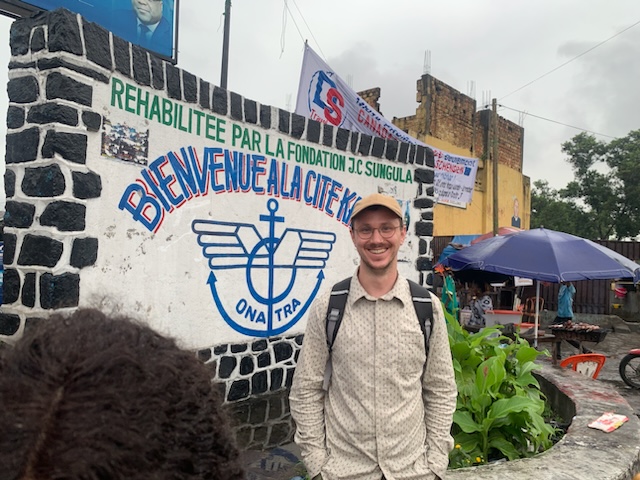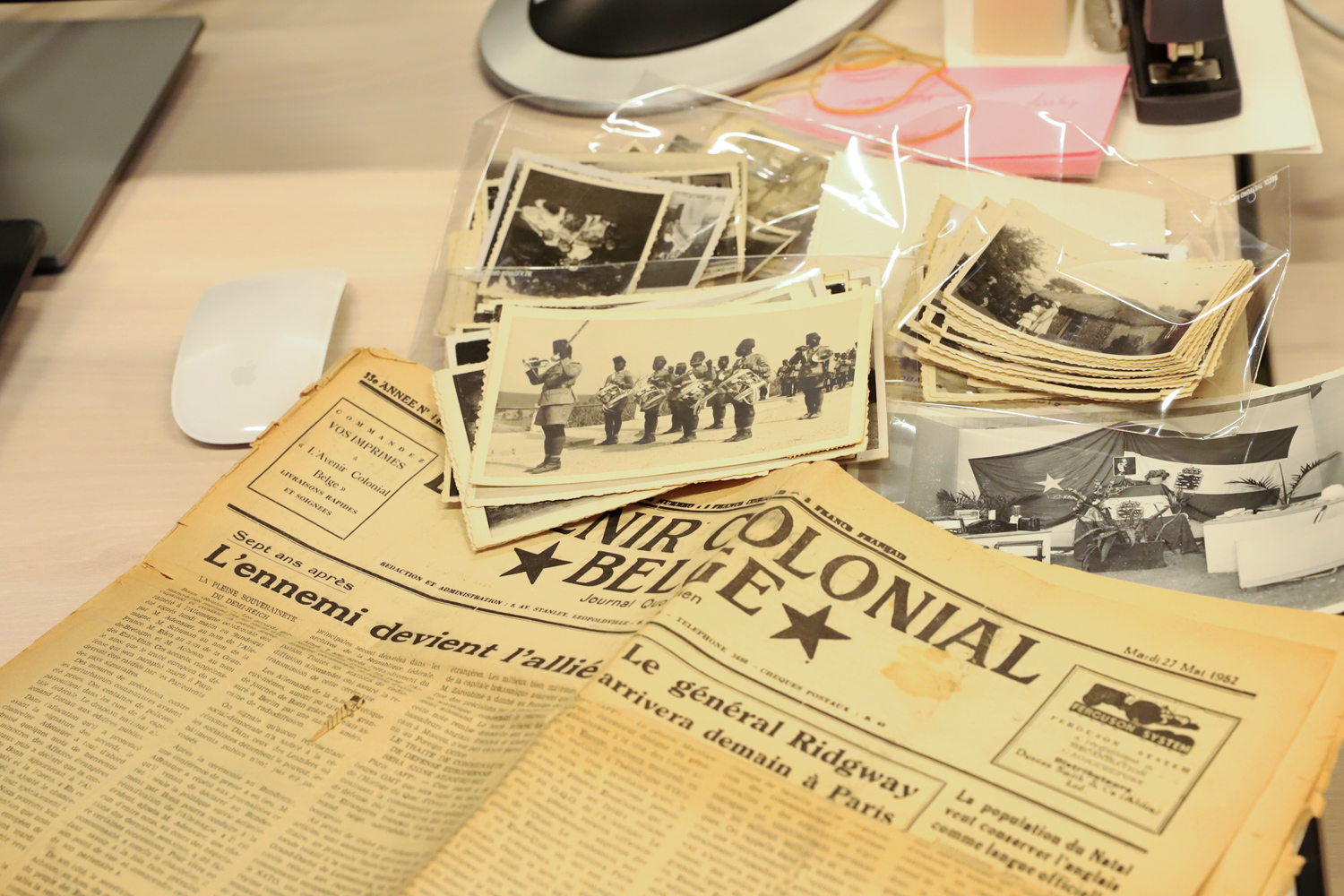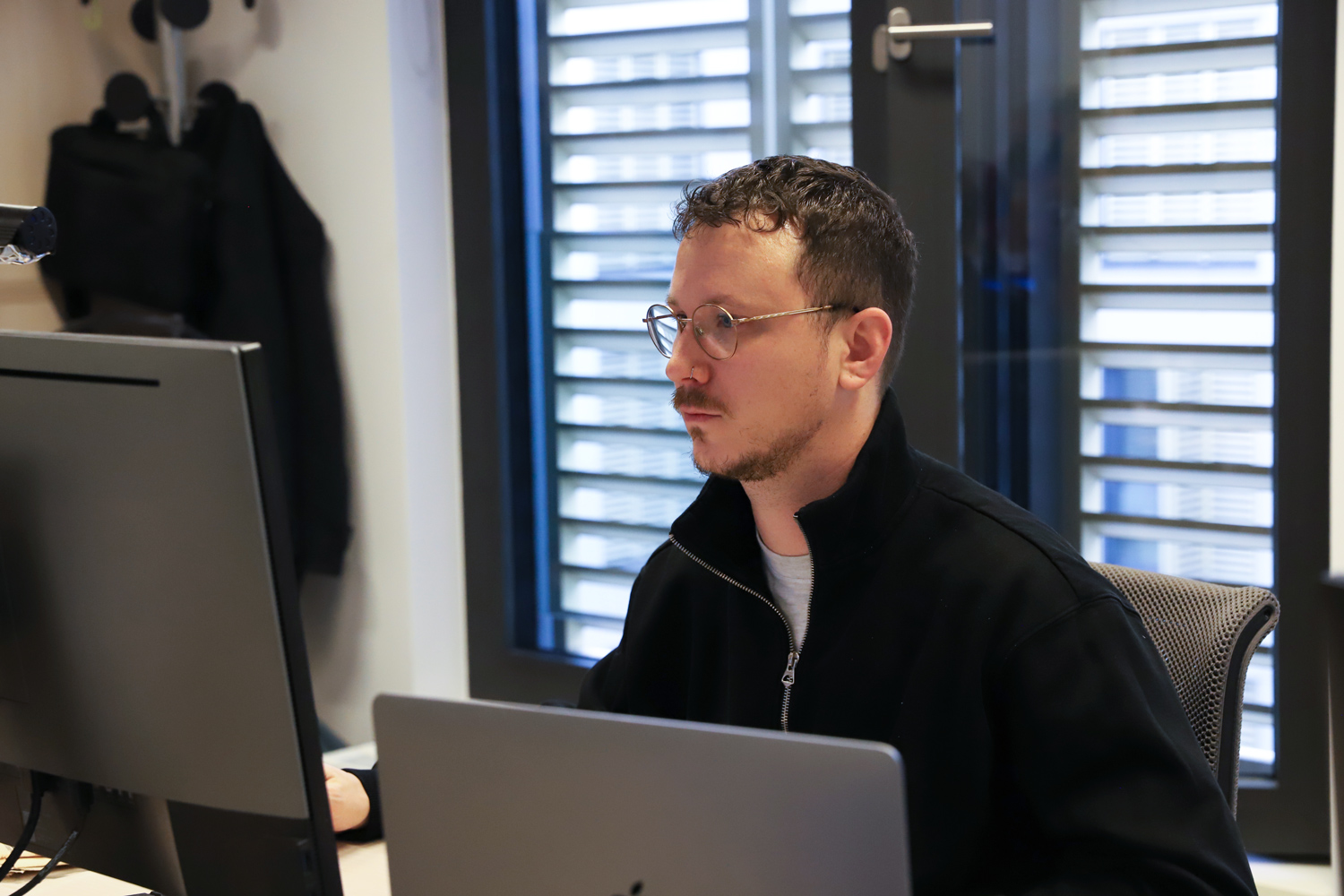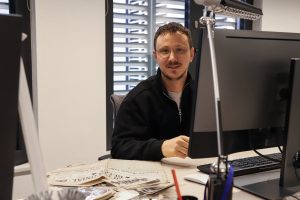Deepening our understanding of Luxembourg’s colonial past
Luxembourger Kevin Goergen works as a doctoral researcher at the C²DH and is focusing on the colonial history of his country, especially in the Congo Basin, through the COLUX project.
After earning his bachelor’s degree in sociology and history and a master’s in history from the Free University of Berlin, Kevin Goergen decided he wanted to learn more about Luxembourg’s colonial past. His master’s thesis had used the case of German colonisation of the Cross River region in Cameroon to uncover more about the colonial state and resistance, but he decided for his PhD work to focus on the connection between Luxembourg and colonial empires.
As Luxembourg’s ministry of the state was set to launch a project related to Luxembourg’s colonial past, Goergen waited a year to apply and has since worked as a doctoral researcher at the C²DH, where he’s investigating more about Luxembourg’s colonial history in Africa, through COLUX.

A micro-historical perspective
At the outset, Goergen believed there was much more that could be explored and archived on this topic; he decided to narrow his focus on the Luxembourgers who were based in Sub-Saharan African colonies, as well as their offspring.
At the peak, nearly 600 Luxembourgers (around 0.02% of the population of the Grand Duchy at that time) were established in the Belgian Congo in 1958, the first one having arrived in 1882. Goergen’s research covers the 1880-1972 timeframe.
‟ The link between colonial projects and Luxembourg is stronger than people think”
“The link between colonial projects and Luxembourg is stronger than people think,” Goergen explains. “Until 1960, when Congo was still a Belgian colony, Luxembourg was still very much involved. After the Congo’s independence, we find discourse where the elites said they have nothing to do with this history. Thus, the state never had to contend with colonial issues and was able to solely benefit from its advantages.” He notes that Luxembourg fits into other states where there was “colonialism without colonies”, such as Switzerland, Finland, Denmark.
So far, Goergen has managed to collect data on around 1,400 individuals. Such data offers a more micro-historical perspective. It allows for an analysis, for example, of class dynamics, family and social networks, the motivations and possibility to go overseas, and the associated opportunities. Ultimately, the story of the colonial entanglements of Luxembourg during colonial times in Africa is “the story of elites,” Goergen explains, given that most who could go to the colony were from the middle and upper classes. The Luxembourgish presence in the Belgian Congo leaves traces over the colonial period and some even to this day. This is evident through individuals, particularly private actors and missionaries, who remained in the country after independence—some of whom established businesses that still exist today. It is also reflected in names of areas that remain in the collective memory of some Congolese. Furthermore, it is visible in the descendants and children of Luxembourgers, who in most cases were not acknowledged by their fathers and remained in the Congo.
Challenges around contemporary history
Although Goergen has delved into archives in Luxembourg, France, Belgium, Germany, Portugal and the Democratic Republic of Congo. Goergen was able to use publicly available information—newspaper articles, for instance—to contact some of the descendants of colonial actors and obtain sources produced by the actors themselves, such as letters. Although just some of them have opted to discuss their family history with him, in some cases they’ve shared fascinating stories and recollections.


Each family deals with the past differently—and sometimes there are conflicting views even within a family. “My own conclusion is that most people, the children, know about this part of their family but they never really discussed it in the family. They often start to research their own family history when their parents die.” Ultimately, of course, many have deeply emotional connections to this topic.
A boost to the topic
Goergen sees plenty opportunities for future researchers to expand knowledge of Luxembourg’s colonial past, also in other locations. There also seems to be renewed interest in this history. As he explains, “Especially after the Black Lives Matter demonstrations in Luxembourg, I think it really boosted this topic and the question around the involvement of Luxembourg during that period.”
Goergen says he appreciates the C²DH’s research environment, especially the relation between the researchers. Although he works largely independently on his topic, there are opportunities to collaborate with other colleagues to further explore analyses and methods, such as its bottom-up approach and a critique of digital history.
